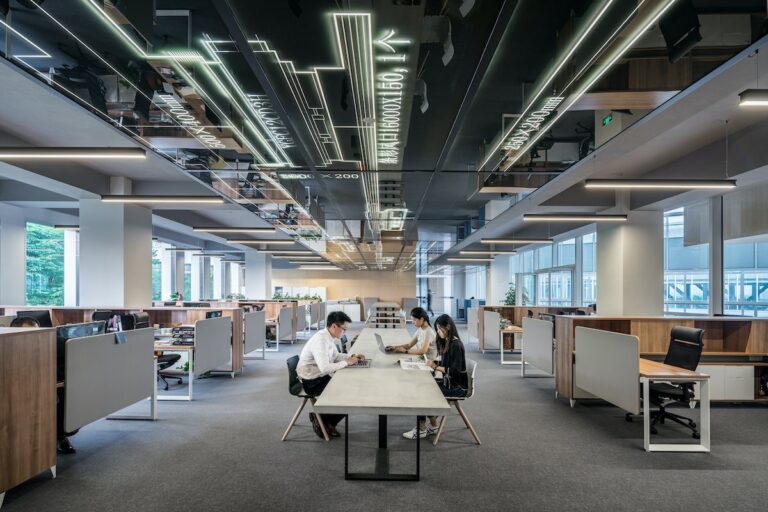A Year in the Life of a Manager Development Programme | Part One
I’ve just started a new project designing and delivering a 12-month Manager Development Programme for a client in the technology sector. And I’m hoping you’ll join me on the Programme Design and Development Journey.
I’m planning to share the experience by blogging about it. I won’t just share what the client will see but also the action behind the scenes.
I’ll talk about:
- The research
- The thinking
- The idea generation
- The decision-making
And I’ll share my approach to the design, the materials and everything else that goes into the Programme.
Why do this?
I admit it’s a little bit scary. I’m making a public statement. And I’m opening myself up to scrutiny by my peers and clients about my working style and method.
So, why do it?
1. To aid reflection
For one, I’m hoping it will aid my reflective practice. When I coach and train leaders I encourage them to learn through reflection. It helps them to draw on the lessons from our work together and to build on them. And in my own work, I know I value the benefits I get from reflection and supervision. But it doesn’t come naturally to me. So by writing about the experience, I’m hoping it will help to focus my reflection and allow my work to go deeper.
2. To share learning
The main reason for sharing this journey on a step-by-step basis is that my business exists to help organisations to develop their talent. And I want to help talent development professionals like you as much as I can.
By sharing this experience I hope you will be able to learn from what I do.
- From the successes and the mistakes
- From the comments of the client and the participants
- From any ideas you may get as a result.
And I’m hoping you’ll allow me to learn from you too.
I’m hoping that you’ll ask me some questions and comments along the way?
- Do you agree or disagree with my actions?
- Do you have any critiques or recommendations?
I will be open to and consider all feedback with care.
So, to find out more about the Design and Development of a Management Programme, read on.
Developing talent for a growing organisation
My client (who will remain anonymous), is a fast-growing technology consultancy with 17 global offices across 12 countries. Consultancies like this one have unique needs from their people management.
Employees work on different projects for different clients. The project managers manage them on a day-to-day basis to deliver what the client needs. So each employee may work for several different managers during any 12-month period.
This approach works well from an operational perspective but is short-term and can be unsettling for employees. That’s because they can feel that there is no-one looking out for them as an individual and helping them to develop their career.
When a consultancy is small, the approach works. This is because the management team will be close enough to all employees to focus on them as individuals. But, as the company grows, it’s no longer workable for the management team to manage everyone effectively. And that’s what has happened with my client.
Their recent staff survey showed employees are uncertain what the future holds for them. They feel they lack recognition and development. And they don’t know what they need to do to progress.
People management needs in a consultancy
I’m familiar with the specific management needs of consultancies.
15 years ago I worked at a technology start-up. Avanade was a joint venture between Accenture and Microsoft. And we experienced the same challenge. While we were small, the management team could connect to all the employees. But as we grew there were just too many employees for the management team to look after effectively.
So we introduced a role that would be responsible for focusing on the individual. It’s what most consultancies do when they grow beyond a certain size.
At Accenture, the role was called a Career Counsellor. In Avanade, we called them Managing Consultants. In my client’s case, they’re referred to as Line Managers.
In all cases, the responsibilities are the same.
- They’re responsible for keeping regular contact with named employees.
- They’re responsible for managing their performance across the different projects they work on.
- They’re responsible for supporting their career development within the organisation.
And those responsibilities need new skills and behaviours. That’s where the Manager Development Programme comes in.
The Client Brief: Design a Manager Development Programme
The client asked me to suggest a proposal for a Development Programme that would help managers to:
1. Understand their role as managers
2. Take ownership for developing the skills they need to be effective
3. Develop those skills that are critical for fulfilling the role effectively. For example:
- Adapting their communication and management style to the needs of the situation
- Driving performance through delegation, goal setting and feedback
- Coaching team members to develop and grow their potential
- Having courageous conversations around performance, behaviour and people issues
- Having career conversations that engage, motivate and keep their best people
4. Develop the agility needed to grow with the organisation
So what did I recommend?
My proposal
Actually, not very much. Because I think it would have been a huge mistake to start designing a Programme in response to the brief. What was much more important to me was to talk to the managers who would be taking part in the Programme. I wanted to involve them in its design so they were brought in from the start.
In my opinion, if you’re going to design a programme that meets the needs of the managers you need to design it together with the managers.
Years ago, when I first started my career, I worked at Procter and Gamble (P&G) and helped to develop new washing powders. At P&G, we would never have dreamt of developing a new detergent without the input of the consumers we were designing it for. I think that’s why I’m so passionate about involving all the participants in the design of a Management Programme: no one knows what they need better than they do.
First steps
My first step in the process was to call each of the participants on the phone. I wanted us to get to know each other a bit better. And I wanted to understand a bit more about their roles? and the context in which they work. I felt it was important to find out the challenges they saw themselves facing in taking on their new responsibilities. And most importantly we could discuss any ideas they had about how they’d like the Programme to run and explore what they were hoping to get out of the Programme.
In my next blog post, I’ll let you know what I found out.
Your thoughts
What do you think about my approach? I’d love your thoughts, comments, questions and suggestions. Please add your comment below or send an email to antoinette@antoinetteoglethorpe.com.




8 thoughts on “A Year in the Life of a Manager Development Programme”
Having connection with your client is very big impact of your profession and now I am eager for your next blog.
It is important to know first the rules and the nature of the work. Having a great connection with your client is important to be able to success.
Very detailed about Manager Development Programme. Specially you brief described “The Client Brief: Design a Manager Development Programme”. It’s particularly useful to point out as a manager.